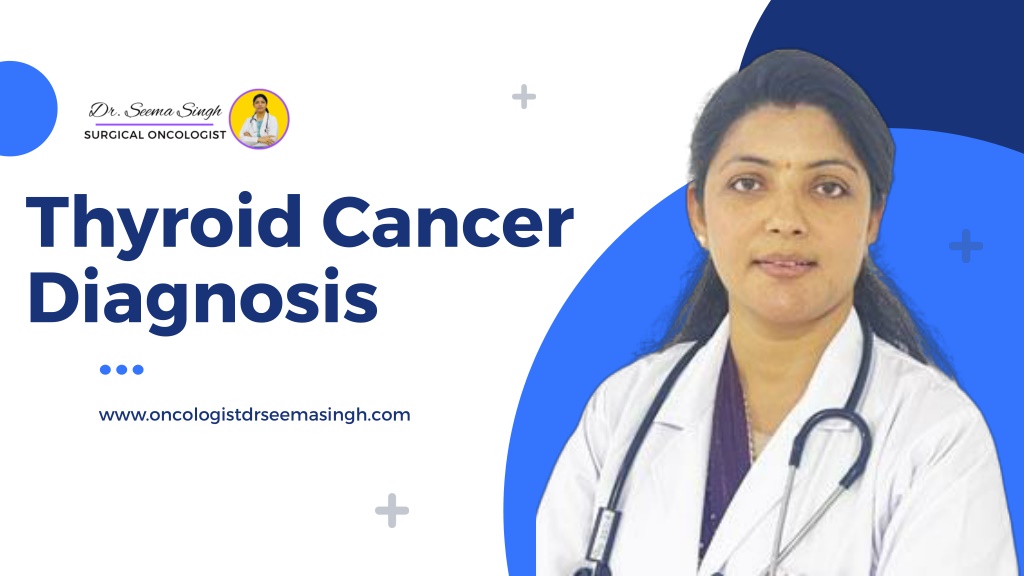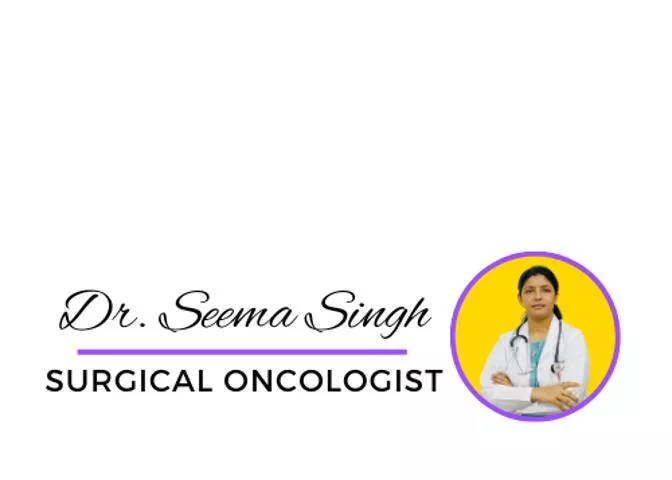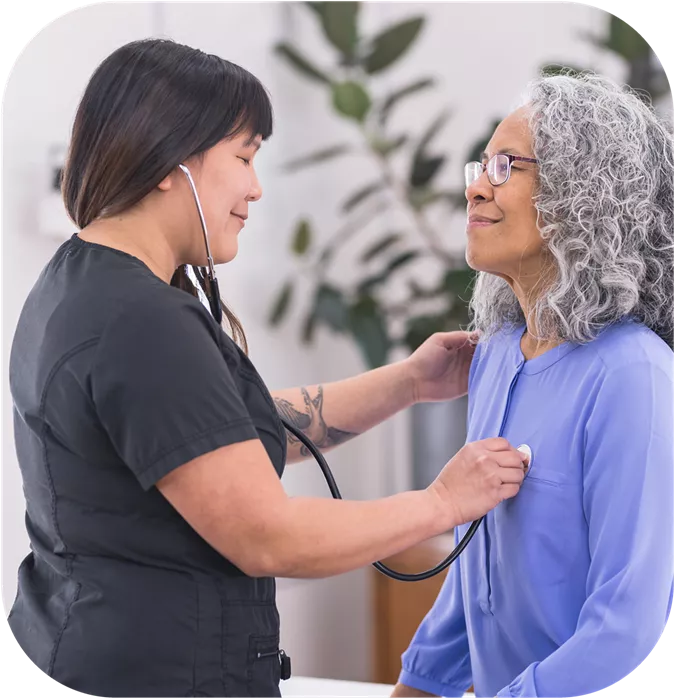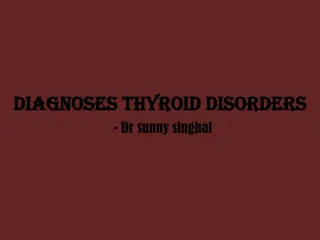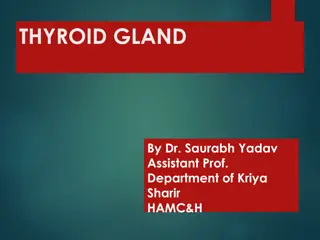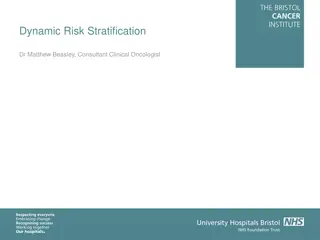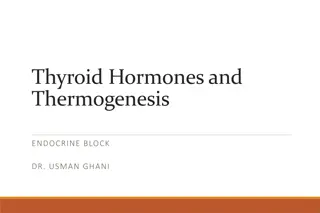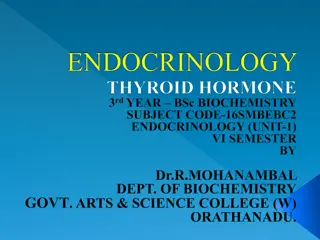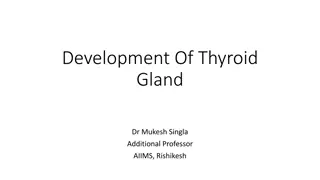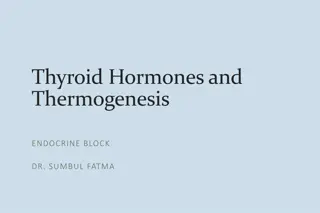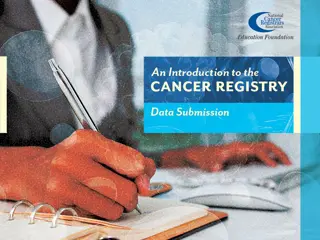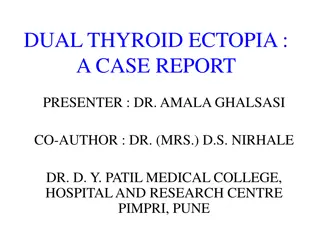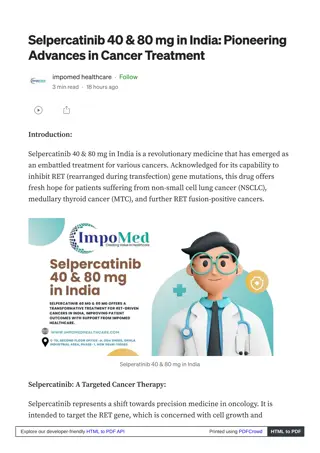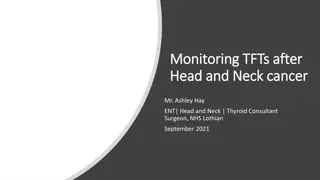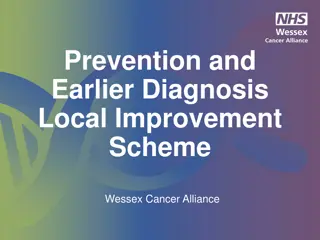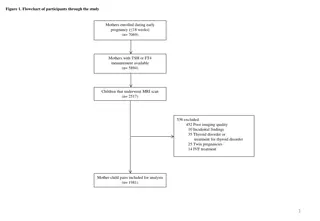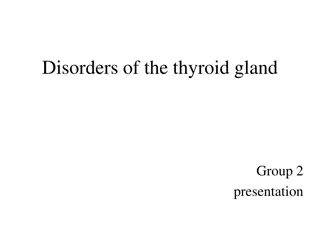Thyroid Cancer Diagnosis
Thyroid Cancer Diagnosis by dr seema singh
Download Presentation

Please find below an Image/Link to download the presentation.
The content on the website is provided AS IS for your information and personal use only. It may not be sold, licensed, or shared on other websites without obtaining consent from the author. Download presentation by click this link. If you encounter any issues during the download, it is possible that the publisher has removed the file from their server.
E N D
Presentation Transcript
Thyroid Cancer Diagnosis www.oncologistdrseemasingh.com
Physical exam Your health care provider will examine your neck to feel for changes in your thyroid, such as a lump (nodule) in the thyroid. The provider may also ask about your risk factors, such as past exposure to radiation and a family history of thyroid cancers.
Thyroid function blood tests. Tests that measure blood levels of thyroid- stimulating hormone (TSH) and hormones produced by your thyroid gland might give your health care team clues about the health of your thyroid.
Removing a sample of thyroid tissue. During a fine-needle aspiration biopsy, your provider inserts a long, thin needle through your skin and into the thyroid nodule. Ultrasound imaging is typically used to precisely guide the needle. Your provider uses the needle to remove some cells from the thyroid. The sample is sent to a lab for analysis.
An imaging test that uses a radioactive tracer A radioactive iodine scan uses a radioactive form of iodine and a special camera to detect thyroid cancer cells in your body. It's most often used after surgery to find any cancer cells that might remain. This test is most helpful for papillary and follicular thyroid cancers.
Genetic testing. A portion of medullary thyroid cancers are caused by inherited genes that are passed from parents to children. If you're diagnosed with medullary thyroid cancer, your provider may recommend meeting with a genetic counselor to consider genetic testing. Knowing that you have an inherited gene can help you understand your risk of other types of cancer and what your inherited gene may mean for your children.
Thank You. For Your Attention www.oncologistdrseemasingh.com
